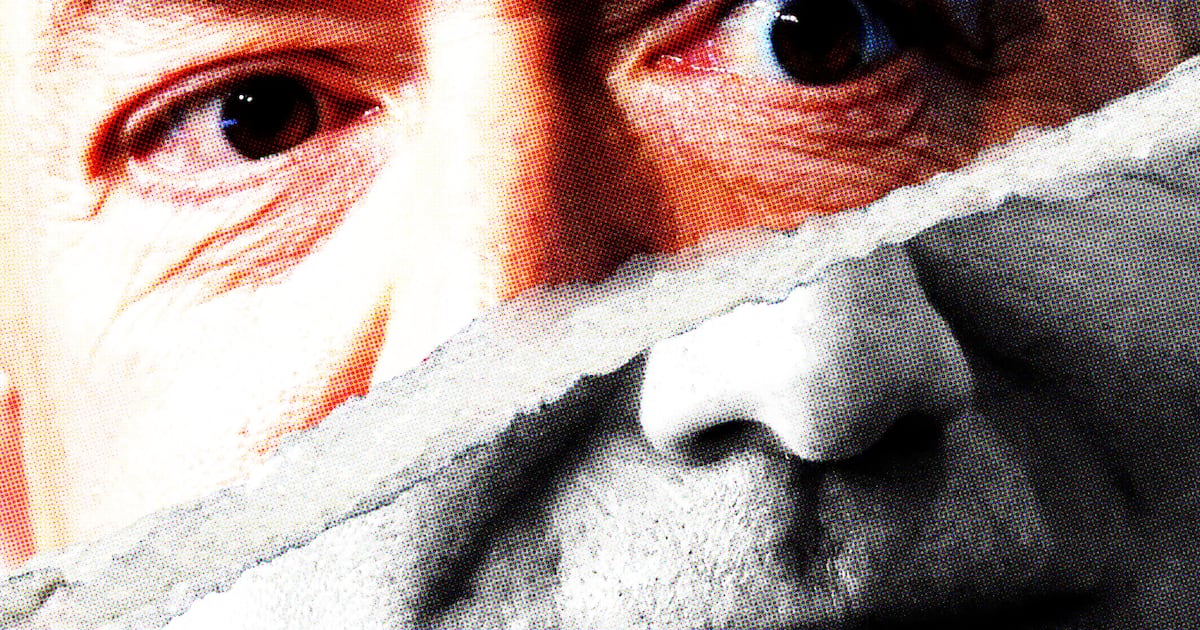
Who are the Blue Dog Democrats? In theory, they are a caucus of moderate to conservative Democrats in the House, most of them hailing from rural and suburban swing districts. As Republican members melted away in 2006 and 2008, many were replaced by Blue Dogs, who essentially promised to be like Republicans, only anti-war and protectionist and economically populist. They've now emerged as the most serious threat to the Obama agenda.
The Blue Dogs have made a liar out of the president.
It's important to keep in mind that Blue Dogs are not conservatives. Rather, they appear to be, to put it unkindly, preening bozos. Instead of offering principled alternatives, they choose to Hoover up campaign donations from the well-heeled while stabbing their Democratic allies, many of whom made real sacrifices to get them elected, in the back.
ADVERTISEMENT
As someone who thinks the Obama approach to health reform is badly misconceived, I am reluctantly rooting for the Blue Dogs. But for roughly the same reason I could never abide erstwhile-Republican Arlen Specter, their crass opportunism and ideological incoherence doesn't sit well with me. Whether its left-wing primary challengers or conservative Republicans who bring them down, I look forward to the day when the Blue Dogs will leave Congress to take up new hobbies, like macrame or competitive eating. With a filibuster-proof majority in the Senate and a lopsided 256-seat majority in the House, the Obama Democrats should be in a position to do anything they'd like. Yet as the president all but acknowledged last week, his agenda has stalled. It is now all but unimaginable that congressional Democrats will pass health-reform legislation before the August recess, thus giving opponents time to regroup and build their case to the American public. And Democrats have the Blue Dogs to thank, as Republicans watch gleefully from the sidelines.
Henry Waxman, arguably the most influential Democrat in the House and a canny legislative strategist, faced down the Blue Dogs on his Energy and Commerce Committee, threatening to do an end-run around them as they held a Democratic health bill hostage. Naturally, he later backed away, fully cognizant of the Blue Dogs' outsized strength. To start, the Blue Dogs had seven votes on the committee, eight if you count Jane Harman of California, who didn't join their mini-rebellion. But more broadly, the Blue Dogs enjoy tremendous influence because they make the Democrats a truly national party. Without them, Democrats would be overwhelmingly coastal and urban and culturally alien to the small and doughty band of Heartland swing voters who, for better or worse, soak up most of the attention in an election year.
In fairness, the Blue Dogs do have a number of decent ideas. For example, they want doctors in underserved rural areas to receive more compensation from Medicare than doctors in overserved urban areas, a measure that might help reduce costs over time by easing the severe overspending that some argue is caused by gluts of specialists.
Blue Dog guru Jim Cooper, a House Democrat from Tennessee best known until recently for killing President Clinton's health proposal and setting into motion over a decade of Republican Congressional dominance, has another excellent idea, one that should delight conservatives. He has championed a proposal that would create a new agency, the Independent Medicare Advisory Board, that would, like today's Medicare Payment Advisory Commission, recommend changes to the way Medicare works designed to reduce costs and raise quality. The difference is that IMAC would actually be able to put its recommendations into practice. Once the president signs off on IMAC's recommendations, they'd go into effect unless Congress voted to stop them. And if Congress does indeed vote to stymie IMAC, the president could then veto Congress. That basically means that Congress would need a two-thirds supermajority to resist the awesome power of IMAC. So what happens the next time there is a Republican president? That's right: even without a Congressional majority, conservatives will be able to remake the most vitally important entitlement program with little interference. I genuinely think that this would be a very good thing for the country, as I'm convinced that we need to radically transform Medicare into a more market-friendly, pro-growth system. But surely Democrats don't agree.
The Blue Dogs are also responsible for gutting the Waxman-Markey climate-change bill, which looks very likely to die in the Senate. Again, I think this is fantastic news, as the legislation was badly designed and it might even exacerbate the economic downturn. Yet President Obama was elected on a promise to take dramatic action against carbon emissions. In a sense, the Blue Dogs have made a liar out of the president. By allowing them to get away with such obstreperous behavior, the White House is developing a reputation for weakness. More devastatingly, the Blue Dogs are robbing Obama Democrats of momentum. One key advantage for the left is the sense that they are on the side of History, and that all who oppose them are doomed to go the way of the dodo. While Republicans worship Reagan, Democrats are on to the Next Big Thing. As the Obama agenda sputters and gasps, however, the right has an opportunity to look, well, progressive.
Slowly but surely, Republicans are regrouping. The party is having surprising success with candidate recruitment, while the Democrats are having a far tougher time. Though it's too early to predict a serious Republican comeback, it is entirely possible that the 19 Blue Dogs who defeated Republicans in 2006 and 2008 will return to the primordial ooze from whence they came. And they'll only have themselves to blame: had the Democrats stayed united, conservative could have been effectively marginalized. But through their constant inside-the-tent sniping, they've made the GOP look like the voice of sweet reason.
Reihan Salam is a fellow at the New America Foundation and the co-author of Grand New Party .





